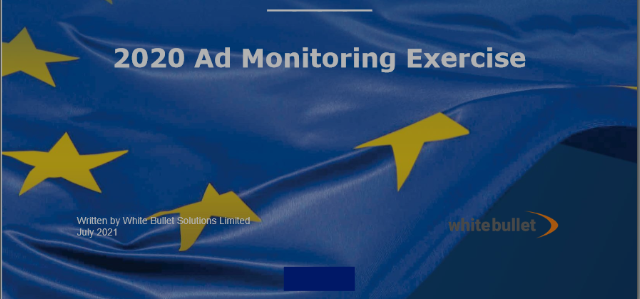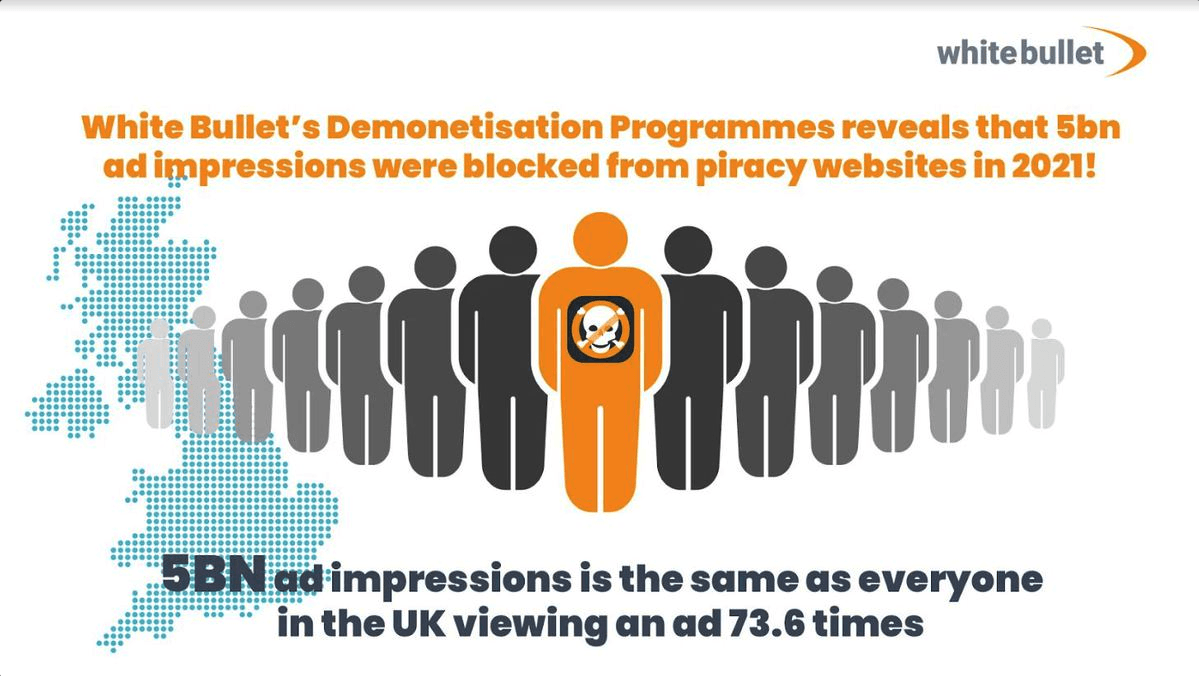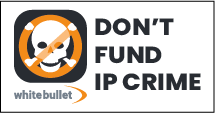Françoise Nyssen, France’s Minister of Culture, admits any “blacklist” must be "constantly updated" to circumvent blocklist evasion techniques used by IP infringing websites. Due to sheer volume and dynamism of the online and mobile piracy ecosystems, keeping an effective list of infringing websites cannot be done through reliance on human review alone.
Smart use of artificial intelligence, as a trusted flagging mechanism for human review, is the way to manage this.
France appears to be the latest country to adopt an Infringing Website List (IWL) as part of the French government’s strategy to demonetize pirate websites.Although IWLs have proven to be successful in limiting advertising revenue received by pirate websites in the past, the increased use of blocklist evasion techniques – such as domain hopping, automatic redirecting, and mirroring – is challenging the effectiveness of IWLs. Technology can help solve this.
Through “Operation Creative”, PIPCU – the City of London Police’s intellectual property crime unit – was the first to develop an IWL as part of a wider strategy to reduce financial and technical support to pirate websites. This included tackling the advertising revenue received.Initially developed in 2013, the PIPCU IWL comprises a list of websites, known to be unresponsive to law enforcement and each reviewed by police officers. Brands, advertising companies, and other Operation Creative stakeholders can use the IWL to identify illegal websites.
Based on ad monitoring data provided by White Bullet, in the twelve months from March 2016, PIPCU demonstrated a 64% decrease in advertising from the UK’s top ad spending companies on IWL websites.In the wake of Operation Creative’s success since 2016, numerous countries have adopted similar approaches. Governments and law enforcement agencies recognise that the most effective anti-piracy strategy is to engage with brands and advertising companies to ensure they are not inadvertently funding illegal websites through advertising revenue – often their sole source of income. Denmark , Indonesia , Hong Kong , Malaysia , and Taiwan have all implemented IWL initiatives in one form or another. Françoise Nyssen’s comments suggest France could be the next to follow.
White Bullet's Q4 2017 ad-tracking data from France shows 300 premium brands had placed advertising on pirate websites.However, despite the introduction of IWL initiatives being a positive development, and a way to highlight the problem within the advertising community, blocklist evasion techniques used by pirate websites have challenged first-generation static IWL methods.According to White Bullet, next-generation technologies should be implemented to keep infringing lists updated, tracking websites in real time and seriously impacting their ability to receive revenue from misplaced advertising.This is because AI and real-time, or dynamic, tracking can see past domain hopping and similar techniques used by pirate websites.
Such technologies form the basis of version 2.0 IWL blocklisting.Domain hopping is an evasion technique used frequently. When Google receives large numbers of takedown requests for a particular infringing website, Google attempts to demote the website in their search engine results. Moreover, the more takedown requests a website has, the more likely it is to be placed on an IWL.To avoid this, pirate websites often hop to a new domain that has no takedown requests and may automatically redirect users to their new domain.
Mirroring – where two or more websites appear to be identical in everything other than protocol or domain name – is another technique used by pirate websites to stay off law enforcement’s radar. By mirroring its content across multiple domains, the website may dilute its takedown requests.Such blocklist evasion techniques keep pirate websites one step ahead of blocklists like the PIPCU IWL.As of May 8th, 2018, 36% of the domains listed in the PIPCU IWL have hopped, automatically redirect to, or mirror another infringing domain that is not included in the IWL.
Although advertisers and brands know to avoid placing ads on domains in the PIPCU IWL, they will not necessarily be aware if any of those domains have hopped or automatically redirect to a new domain. Nor will they be aware of any websites that mirror domains in the IWL. Domains that have arisen as a result of blocklist evasion techniques should also be considered high risk.White Bullet has published multiple reports in the past showing brands and ad companies that have embraced the IWL are still inadvertently misplacing advertising on websites that infringe third party intellectual property , partly because legacy IWL methodologies still used in the industry fail increasingly to successfully combat new blocklist evasion techniques.Many ad companies, brands as well as governments and enforcement bodies turn to White Bullet to provide AI-driven regulatory compliance technology to address blocklist evasion techniques used by pirate websites.
White Bullet'sIPI Index is a dynamic and ever-expanding platform analysing millions of IP infringing domains, each assessed and scored for IP infringement risk on a daily basis. Effectively, the IPI Index is the next generation IWL. White Bullet's AI-driven technology detects if a domain has hopped or automatically redirects to a new domain, as well as detecting mirroring relationships between infringing domains.To keep their blacklists up to date, keepers of IWLs must invoke dynamic AI-driven technology to stay ahead of circumvention and the anti-detection techniques deployed by pirate websites.To ensure you have the most up to date piracy watchlist on the market – one that eliminates the issue of blocklist evasion techniques –
contact White Bullet to make use of our IPI Index.
Get started with IPIP
Collect all your data for unified prevention, detection, and response to digital piracy.
White Bullet has helped over 3,000 brands to avoid funding digital piracy.
With over a billion dollars of ad spend funding IP infringement in 2020, it's time to work with us to stop pirates from using advertising to profit from distributing intellectual property.












